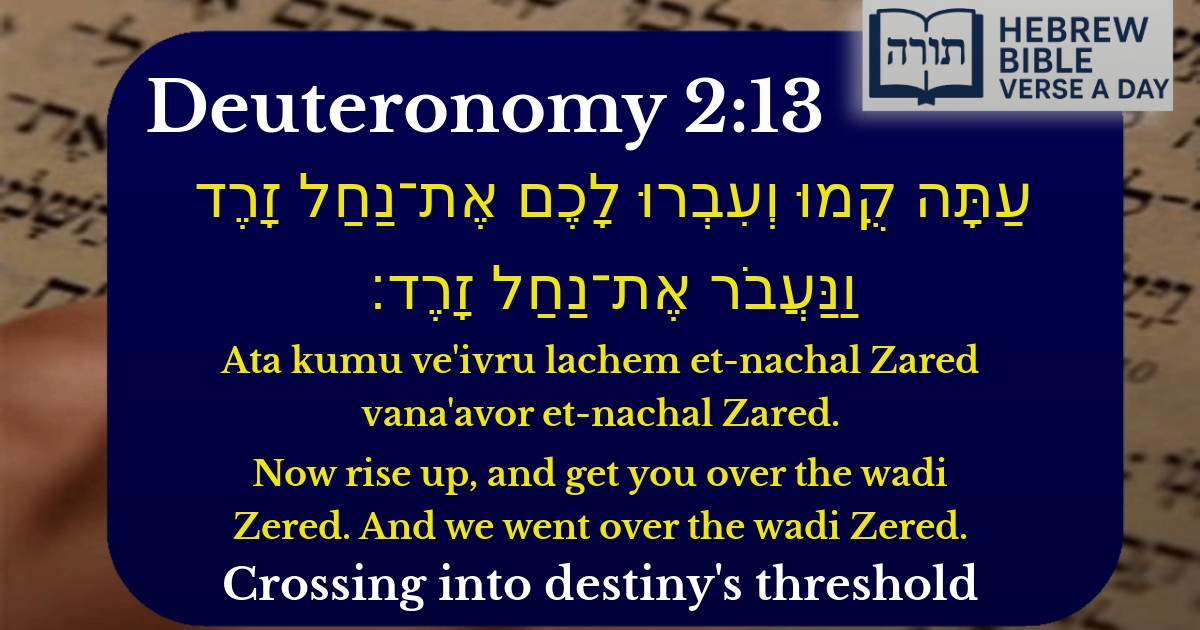Join Our Newsletter To Be Informed When New Videos Are Posted
Join the thousands of fellow Studends who rely on our videos to learn how to read the bible in Hebrew for free!
Hebrew Text
עַתָּה קֻמוּ וְעִבְרוּ לָכֶם אֶת־נַחַל זָרֶד וַנַּעֲבֹר אֶת־נַחַל זָרֶד׃
English Translation
Now rise up, and get you over the wadi Zered. And we went over the wadi Zered.
Transliteration
Ata kumu ve'ivru lachem et-nachal Zared vana'avor et-nachal Zared.
Hebrew Leining Text
עַתָּ֗ה קֻ֛מוּ וְעִבְר֥וּ לָכֶ֖ם אֶת־נַ֣חַל זָ֑רֶד וַֽנַּעֲבֹ֖ר אֶת־נַ֥חַל זָֽרֶד׃
עַתָּ֗ה קֻ֛מוּ וְעִבְר֥וּ לָכֶ֖ם אֶת־נַ֣חַל זָ֑רֶד וַֽנַּעֲבֹ֖ר אֶת־נַ֥חַל זָֽרֶד׃
🎵 Listen to leining
Parasha Commentary
📚 Talmud Citations
This verse is not quoted in the Talmud.


Context in Deuteronomy
The verse (Devarim 2:13) appears in Moshe's recounting of Bnei Yisrael's journey through the wilderness. The crossing of Nachal Zered marked a significant transition—leaving behind the generation that died in the wilderness and entering the era of conquest under a new generation. Rashi explains that this was a pivotal moment, as the last of the men condemned to die in the wilderness had now perished, fulfilling the divine decree (Bamidbar 14:29-35).
Nachal Zered as a Boundary
The Sifrei (Devarim 12) notes that Nachal Zered served as both a geographical and spiritual boundary. Crossing it symbolized leaving behind the failures of the past and stepping into a renewed commitment to enter Eretz Yisrael. Ramban elaborates that this moment emphasized divine mercy—after 38 years of wandering, Hashem allowed the nation to progress toward their destiny.
The Command to "Rise Up"
The phrasing "עַתָּה קֻמוּ" ("Now rise up") carries deeper meaning. The Kli Yakar highlights the urgency: this was not merely physical movement but a call to spiritual awakening. The generation that had been passive in the wilderness now needed active readiness for mitzvot tied to the Land. Malbim adds that "קֻמוּ" implies overcoming stagnation, echoing Yehoshua's later charge (Yehoshua 1:2) to cross the Yarden.
Lessons from the Narrative